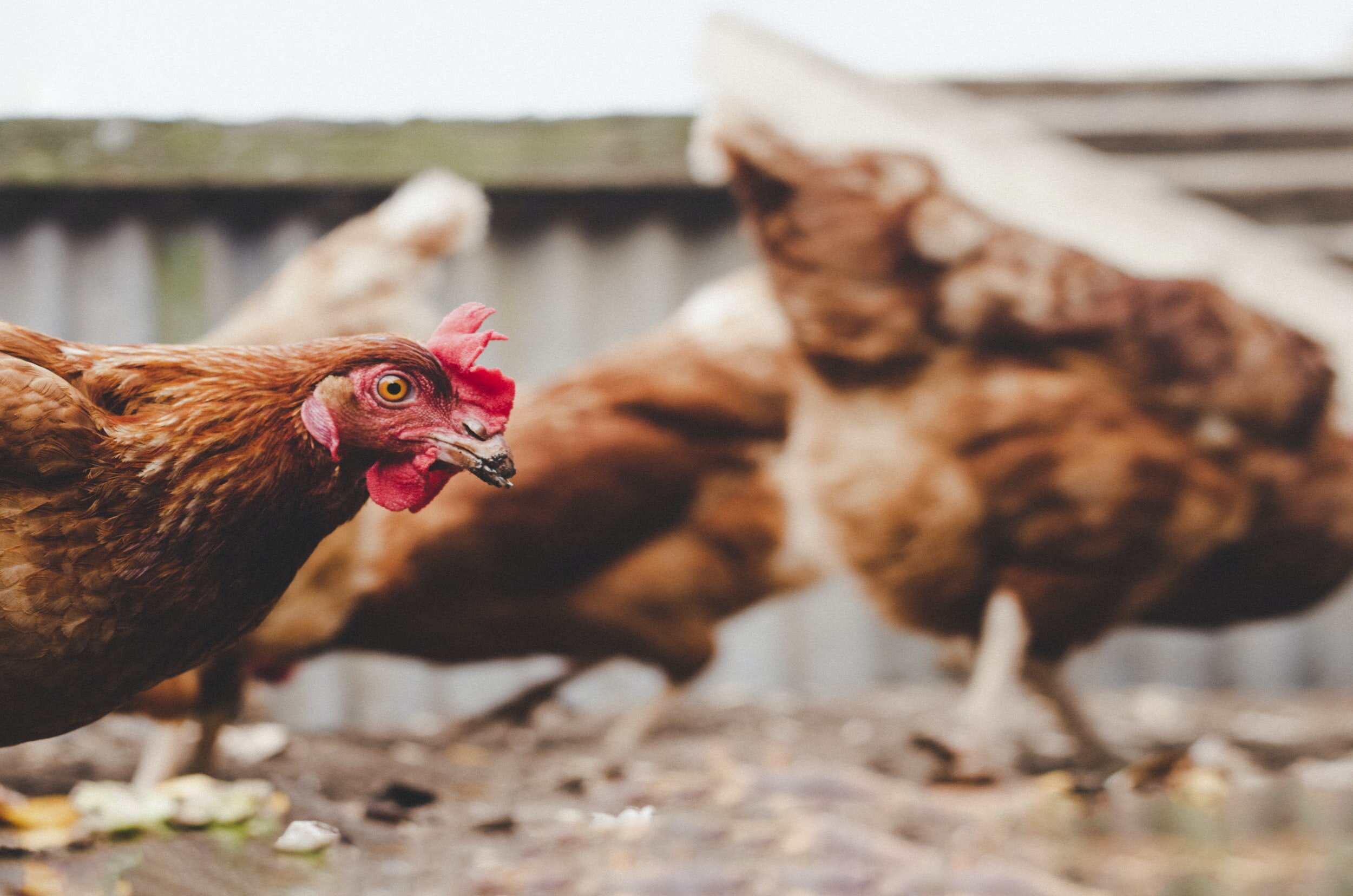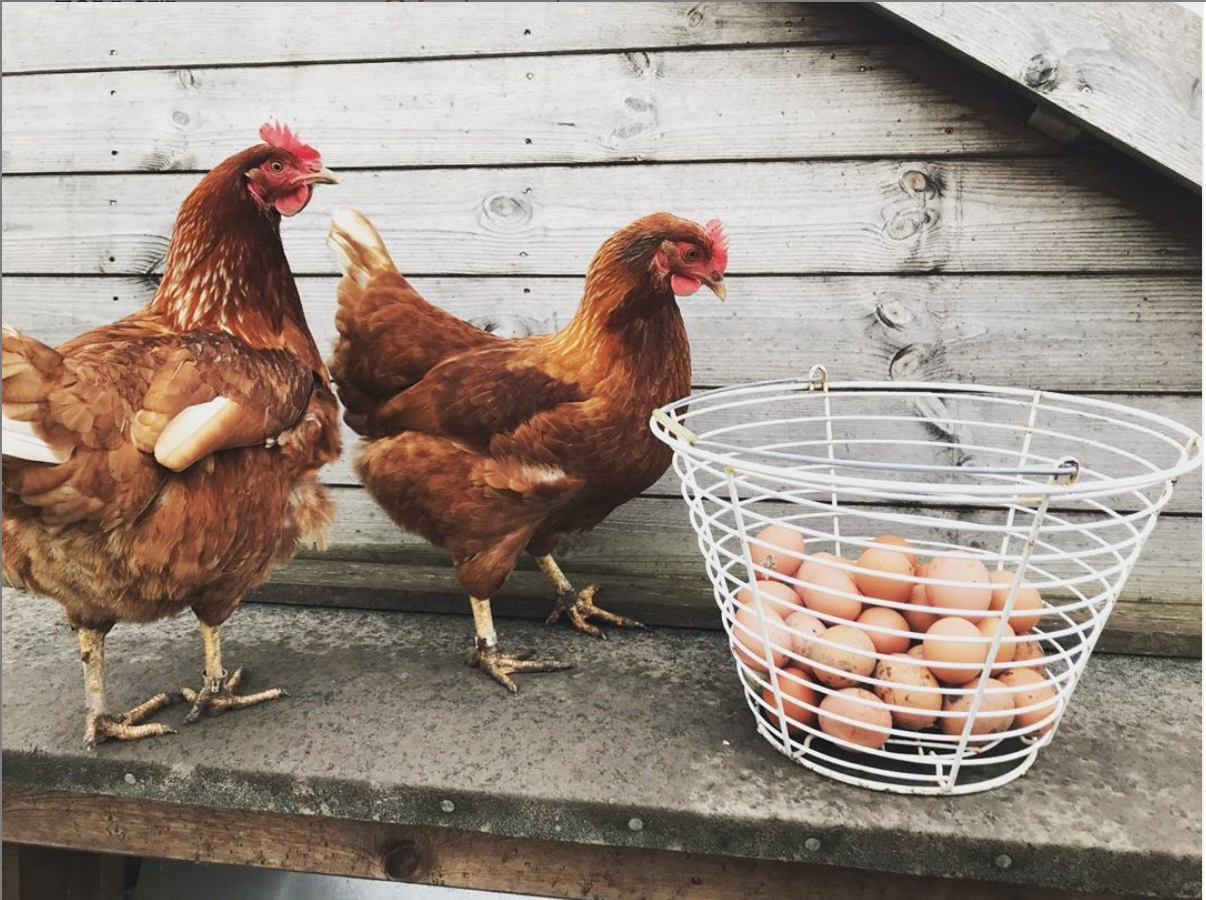In the 8 years of keeping chickens professionally, we’ve only ever come across an egg bound hen once. In this instance, and as a novice in this area, I went straight to the internet to see what other chicken keepers recommended I do to save the poor girl.
If left untreated, an egg bound hen could die, so it’s best to get in their quick and help her out as soon as you notice something isn’t right.
What is egg binding?
‘Egg bound’ means she has an egg stuck somewhere in her oviduct. The usual place is between the uterus and the cloaca. Sometimes you can even see it from the cloaca/vent. When the egg is ready to pass, the cloaca seals shut the intestinal opening so that eggs don’t get covered in poop. If the hen cannot poop within twenty-four to forty-eight hours, she will likely die. Other effects seen from egg binding are vent prolapse – where the vent hangs out of the rear end and, in severe untreated cases, egg yolk peritonitis which can quickly kill a hen from infection.
What’s the reason behind it?
There are multiple things that can cause egg binding. Some are manageable, others not so much.
Passing large or odd-shaped eggs. The oviduct can only stretch so far, and a large or misshapen egg can get stuck.
Malfunction in the reproductive system. Some hens are prone to problems and will lay odd or parchment eggs regularly – genetic issues.
Double yolk eggs. These are larger than the usual egg and can cause problems.
Malnutrition – poor diet low in necessary vitamins, minerals, and protein.
Sedentary life or obesity – muscles become weak from lack of activity or being overweight.
Premature laying – hens that are forced to lay before they are fully developed often develop binding.
Elderly chickens – weak muscles and inactivity.
Egg retention – if insufficient nest boxes are available, a hen will sometimes ‘hold’ her egg.
Underlying reproductive tract infection. Severe infestation of internal parasites.
As you can already see, some of these are readily preventable by good nutrition and attention to the health and welfare of your hens.
How do you know when a hen is egg-bound? Truly, sometimes you don’t. As we know, hens are secretive about any illness or problems. If she can pass the egg herself, you may not even realize she had a problem.
Common symptoms to look for include:
Decreased appetite and drinking.
Lethargic, sitting around, fluffed up.
‘looks sick,’ depressed.
Shaky wings.
She walks like a penguin – she will periodically stop walking and try to squat.
Abdominal straining – you can see the cloaca (vent) straining to expel something.
Tail pumping – her tail will pump up and down to expel the egg.
You can probably apply the first three groups of symptoms to any chicken that is sick with anything. They will usually set off by themselves in a quiet spot. She will fluff the feathers out, and she may have her eyes closed like she’s taking a nap. These signs always bear watching.
How to treat your hen
First, you need to check if she actually is egg bound. Using a latex glove and some vaseline, very gently insert your finger into the vent. Push your finger straight back about two inches or so – you should be able to feel the egg. If you cannot feel an egg – she’s not egg bound.
Prepare a warm water bath with Epsom salts (1 cup ES/1 gallon of water). It needs to be deep enough for your hen to sit to a depth of about three to four inches.
Before you put her in the bath, give her some calcium. A calcium tablet will work great. Make sure you powder it or break it into tiny pieces so the hen can swallow it. Calcium helps to improve the strength of the contractions and helps to expel the egg.
Gently put your hen into the water. She may struggle for a bit, but they usually settle down after a couple of minutes – I think it feels good for them!
She will need to sit in the bath for about fifteen to twenty minutes. When you take her out, towel her off, so she gets dry – a hairdryer will do the trick nicely if she tolerates the noise.
Before doing anything else, place your hen in a quiet, dark, and warm space. The goal is to allow her to lay her egg without any extensive intervention from you or a veterinarian.
After her ‘salon treatment’, put her in a darkened crate with some water and food to drink. If her vent area is swollen, apply some Preparation H, it will help to reduce the swelling. You may need to repeat this treatment three or four times over several hours to try to move the egg along. If, despite your best efforts, she does not pass the egg, your treatment options are getting narrower.
You should seek the services of a veterinarian if you can afford them. If not – the alternative is to remove the egg yourself.
This is not without hazard to your hen. This course of action should be taken as a ‘last resort. We do not advise you to do this unless you have no other choices.
If you can see the egg at the vent, gently make a hole in it large enough to be able to suck the contents out with a syringe (please, no needle!). Once you have the contents out, gently pull on the shell in an attempt to bring it out intact, but if it breaks apart, make sure you have all the pieces.
If you cannot see the egg but can feel it, try to lubricate the vent and cloaca well and try manual manipulation. Sometimes the egg will move, sometimes it breaks. If it breaks, you will have to remove all the shells manually. Any shell pieces left inside will cut and a-braid the interior of the oviduct, leaving the hen wide open to infection.
If you have successfully removed the egg, put her in a crate for a few hours until you know she is eating and drinking just fine. Also check her vent area for prolapse or excessive redness – if it looks red and sore, keep her separate from the flock for a bit longer. If the egg broke inside her, you would need to give her some antibiotics to prevent infection – this requires a veterinarian.
Hopefully you’ll never experience this yourselves, but if you do, I hope this helps you out as much as it helped me!



